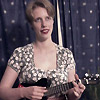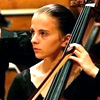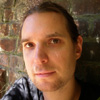Chris Bourke interview - Page 6
Chris: Stimulus from Cambridge students two-way.
Douglas: Oh yes, this whole thing about teaching [chuckles] you learn more than you give, I'm sure. Its very much a two way process, otherwise its not effective.
Chris: How did you see Cambridge generation, although ten years difference.
Douglas: Roughly ten to fifteen years I think. It was very interesting because groups of composers tend to come in waves and Owen Jensen brought together a dozen people I suppose, who had just been waiting for the summer school…many of them went on to London and scholarships and many of them turned out to be very good composers.
Chris: They had advantage of going to Cambridge Summer School and being treated as student composers, a justifiable thing to be.
Douglas: Well Larry Pruden was a case in point - he felt absolutely isolated in New Plymouth before he turned up at that school.
Chris: They received encouragement.
Douglas: They also had a lot of energy and imagination of their own, all I was required to do was give them some direction, technically some of them.
Chris: New Zealandness about your work … as though carrying a burden.
Douglas: I don't think that relates to any particular period - I think that attitude probably came from early days as a student even in Canterbury when I realised what some of the poets and painters were doing showed an awareness of this country which I found very exciting. I was discovering through them, as it were, and certain aspects of form colour and rhythm clarity, I think I learnt from them. Because I grew up dreaming of Chopin, the paintings of Corot - a French romantic painter - I still go back to the Corot room in the Louvre, and of course they're terribly romantic…. Innocent fun. But one had to learn that one lived with bush and not with woods. I was aware…
Chris: About the New Zealandness of sounds.
Douglas: ...and of course the poets could make it so much more explicitly than I could … but I knew that I couldn't set those poems in an older romantic style. I had to throw out half the notes and make it a bit more 'stringy' or sharply defined in a sense. I think it all plays a part in cultivating a style… That old truism - "We are what we eat", but we are also the context that we move about in and our awareness of it.
Douglas: I think this is something critics tended to say when they couldn't think of anything else to say about me "some indefinable quality of New Zealand" was a favourite phrase, [chuckles] what the quality was they could never quite explain to me. You wouldn't remember the old trains, when they stopped at a station half way up the line, somebody would come along with a metal hammer and strike the wheels one after another to see whether they might be cracked. That made a deep impression on me and I felt later that I was tending to do this with harmonies for instance. "Is that sound really valid to my experience or is it just something I learnt from a textbook or a score? Do I really believe that it's true, am I just using something?" It's fairly hard to pin all that down.
Chris: We're about to come to what are regarded as two of the most important works - Sings Harry.
Douglas: This was in my mind that possibly that phrase you mentioned … would stem from a cycle like the "Sings Harry" Glover's poems and the "Elegy" of Alistair Campbell.
Chris: The literary world and you could combine to say something.
Douglas: It's a way of searching out truth. When I went to the Royal College I used to write part songs in the English manner using English forms and I realised this is not my language. I had to discover my language in some way and this is why I think setting words of New Zealand poets or writing music for film where you've got a direct image to work from, you have to relate to those things - you can't help but try and do it. And out of a great deal of this sort of work then possibly a vocabulary, an authentic language develops.
Chris: And it's a natural thing… Nationalism now a dirty word.
Douglas: Yes, it's a dirty word for fairly good reasons, but don't think these things simply disappear, they simply go underground and they come up again with a different label on them - what used to be called nationalism is now environmental sound and very much in vogue. Nationalism - World War Two - a thoroughly nasty word.









